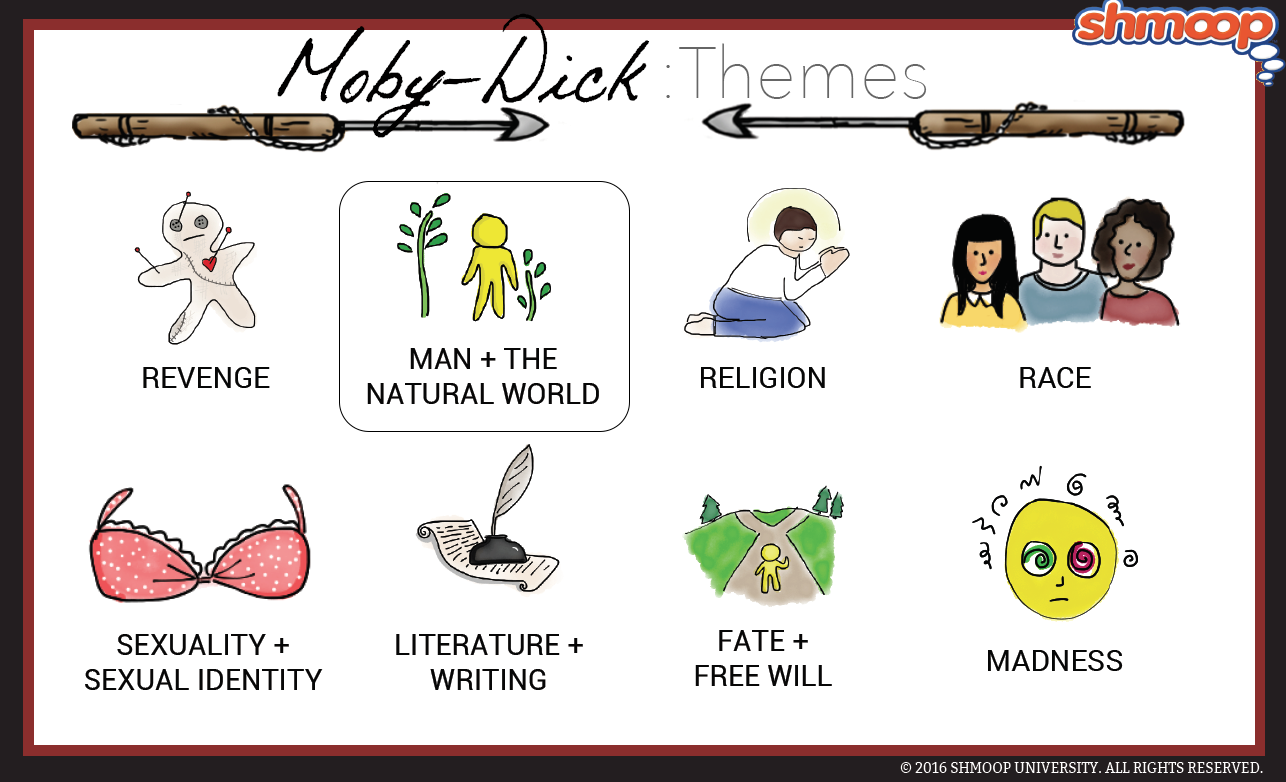 (Click the themes infographic to download.)
(Click the themes infographic to download.)
We don't even have to look at this one symbolically: this is quite literally a book about a dude who goes out into the natural world to kill animals. And by the end of Moby-Dick the score is Natural World: 1, Man: 0.
Beyond Ahab and his whale, though, each character in the novel seems to have a slightly different way of understanding and being in the natural world. Some characters have a healthy respect for the power of Nature; others are so in awe of Nature that they feel themselves dissolving ecstatically into it; still others think of Nature as a collection of resources to be harvested and hunted for man’s profit.
Questions About Man and the Natural World
- Which character in Moby-Dick seems to have the healthiest relationship to the natural world? (Consider Ahab, Ishmael, the mates, and the harpooneers.)
- Does the author’s tone seem to endorse one perspective on Nature more than the others? If so, which one, and how can you tell?
- How did you react to Ishmael’s moment of pantheism, when he dissolves into the natural world around him (Chapter 35)? Is Ishmael transcendent, ridiculous, inspirational, delusional? Something else?
- Where does the novel find value in the natural world? Is Nature important because men hunt, fish, harvest, and otherwise make use of things they find to survive and profit? Does it have value outside of its uses for mankind?
- Is Nature in Moby-Dick a conscious, active power, or just a passive collection of animals and elements?
- Does Nature seem to have personality or force here, or is it impersonal and random?
Chew on This
Nature itself, personified through the white whale, is the most significant antagonist in Moby-Dick, so man’s struggle to survive in (and profit from) Nature is more intense even than crazy Ahab’s desire for vengeance.
Moby-Dick teaches us to understand Nature as an impersonal backdrop, something that is simply a setting in which human beings act out their own neuroses.